‘Urban Nutcracker’ gives Black dancers a chance to learn, grow and shine
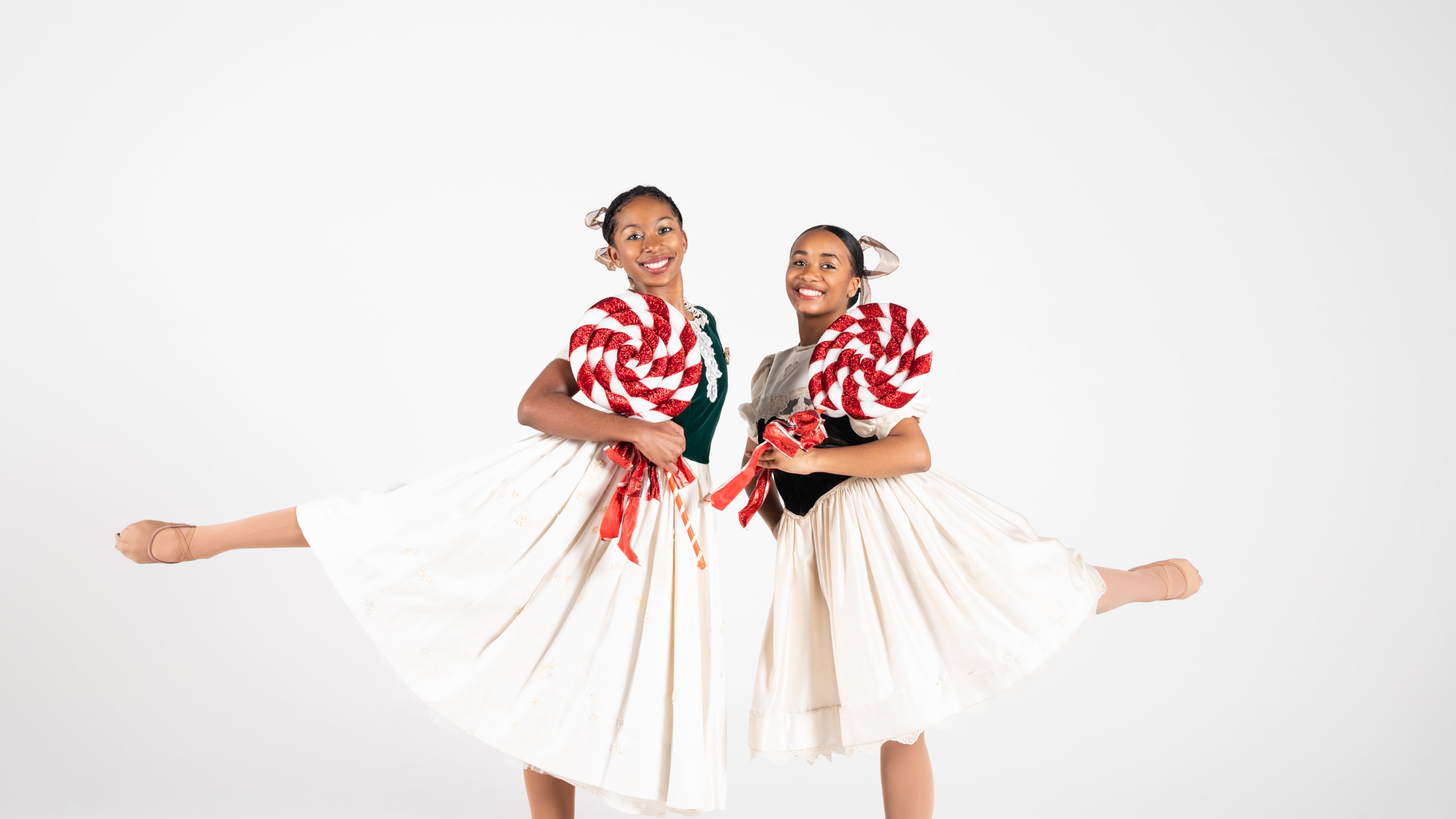
Now that pandemic lockdowns are over, Theresa Freeman-Howard is ecstatic. Ballethnic Dance Company, she says, is back with “the real hard-core, real-deal magic of ‘Urban Nutcracker’.”
Now in its 29th season, “Urban Nutcracker” is a much-loved holiday tradition in Atlanta’s African American community. For many years, it was Atlanta’s first “Nutcracker” of the season, entertaining audiences the weekend before Thanksgiving. In 2021, the company performed a pared-down version at a venue in Alpharetta. This year, it will present the ballet Dec. 9-11 at the Martin Luther King Jr. International Chapel at Morehouse College. Freeman-Howard will perform the role of Mother Johnson, as she has for many years, and is coaching some of the performers.
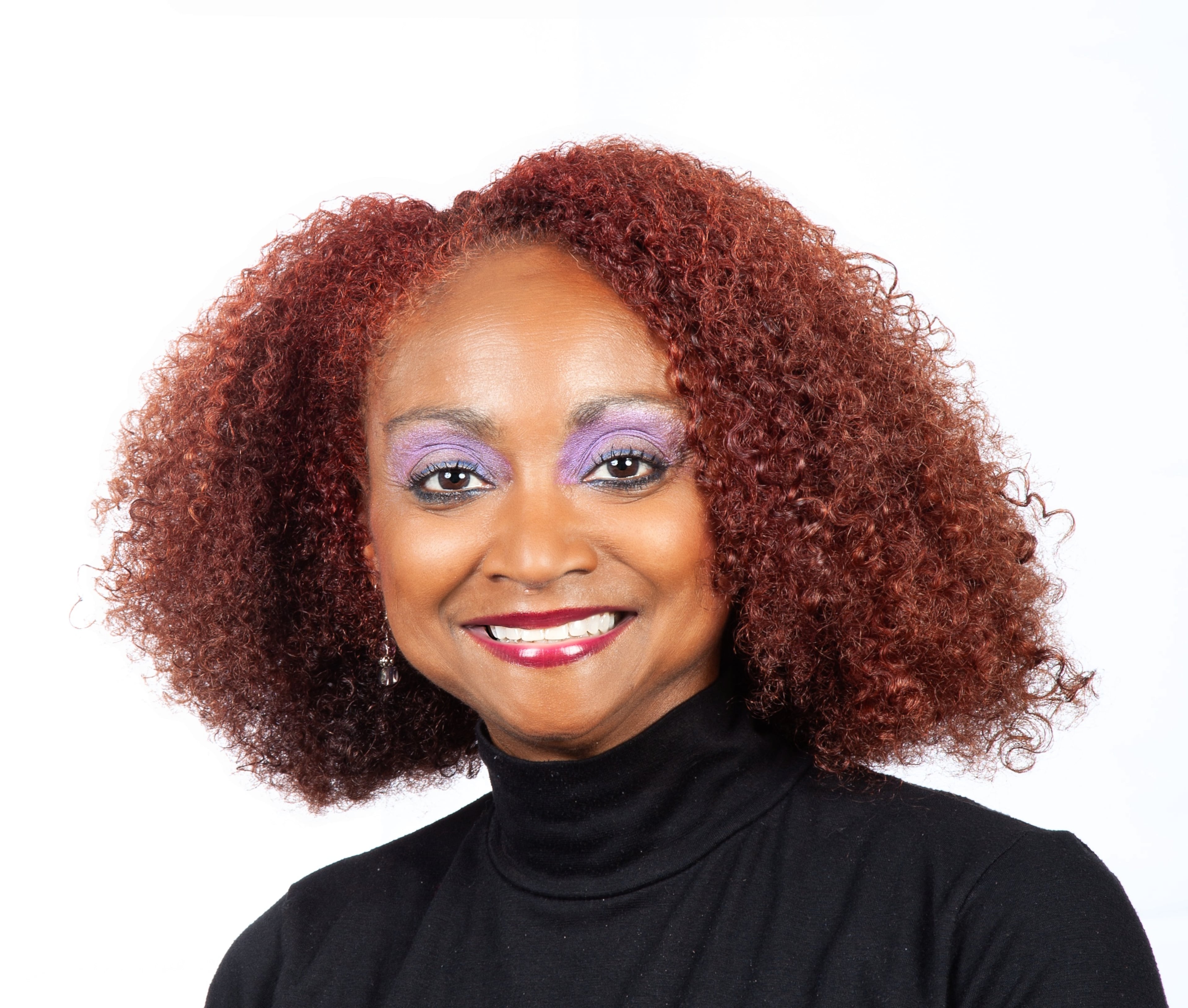
Whenever and wherever it’s presented, “Urban Nutcracker” gives Black audiences a unique, highly relatable take on a ballet that was first performed in St. Petersburg, Russia, in 1892 and which, in most white companies, still reflects a European sensibility. It has also given generations of young Black and brown dancers an opportunity to be part of a community and learn life lessons as well as arabesques.
“Urban Nutcracker” was choreographed by Waverly T. Lucas II, co-founder and co-artistic director of Ballethnic with Nena Gilreath. It is set in 1940s Auburn Avenue and features characters that company member Karla Tyson says Black audiences immediately recognize: the greedy party guest who takes food home; the guest who drinks too much.
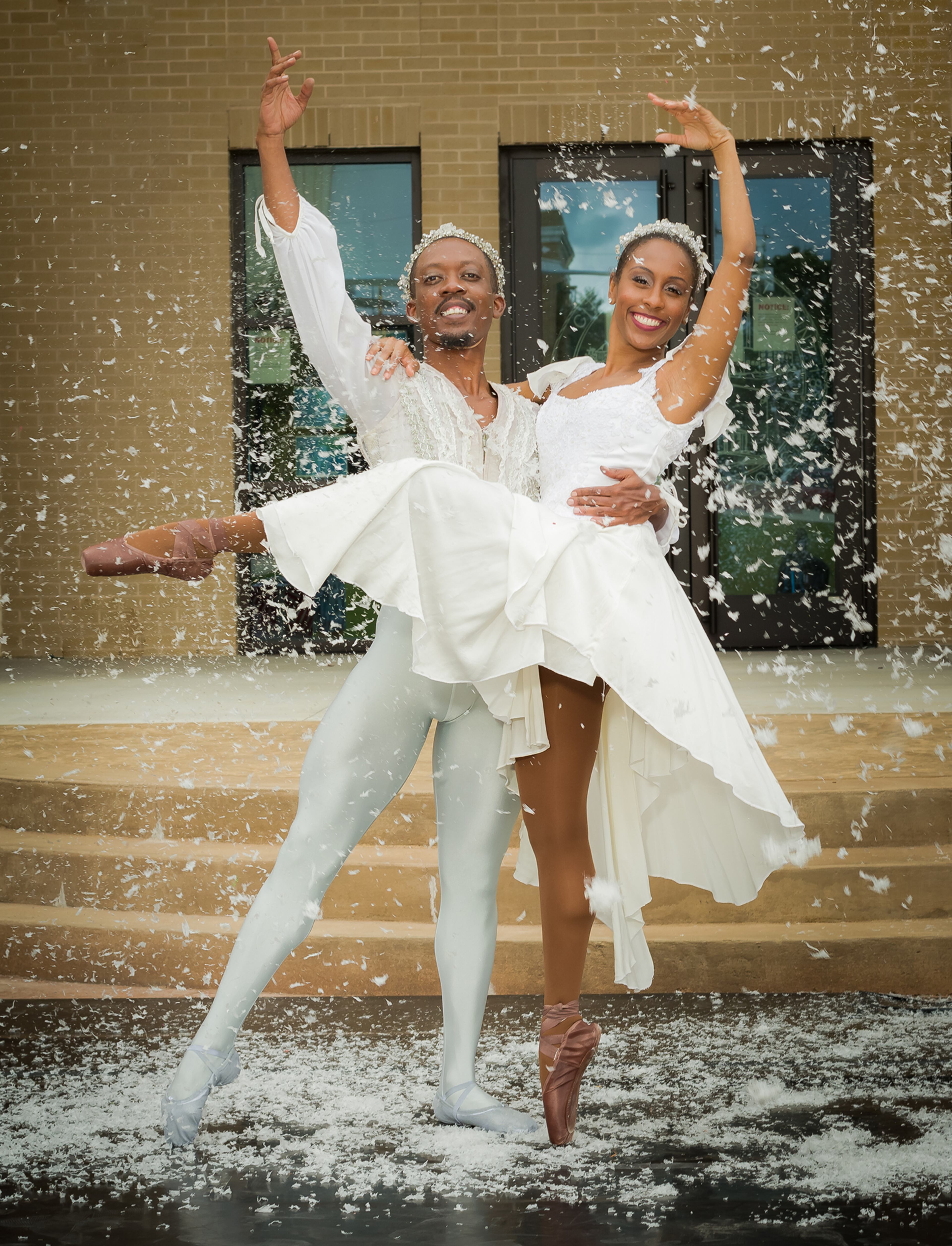
The Reggae Ragdolls, the Black Russians, and Brown Sugar and her Chocolatier, known in many white productions as the Sugar Plum Fairy and her Prince, also signal to Black audiences that this production is about, and for, them.
“It’s a cliché, but representation matters,” says Tyson, who for the 10th year will perform Brown Sugar.

“‘Urban Nutcracker’ has a homey, humble feel to it but it’s also a professional production that people pay to see every year,” says former company member Laila Howard, Freeman-Howard’s daughter. “It’s a beautiful representation of what Ballethnic gives to the world.”
Tyson and Howard danced alongside each other for many years as children. Tyson began her “Nutcracker” career as a Baby Doll at age 5. Howard, who back then was “a scared little girl,” started a couple of years later. They shared the lead child role of Sarah for two years running.
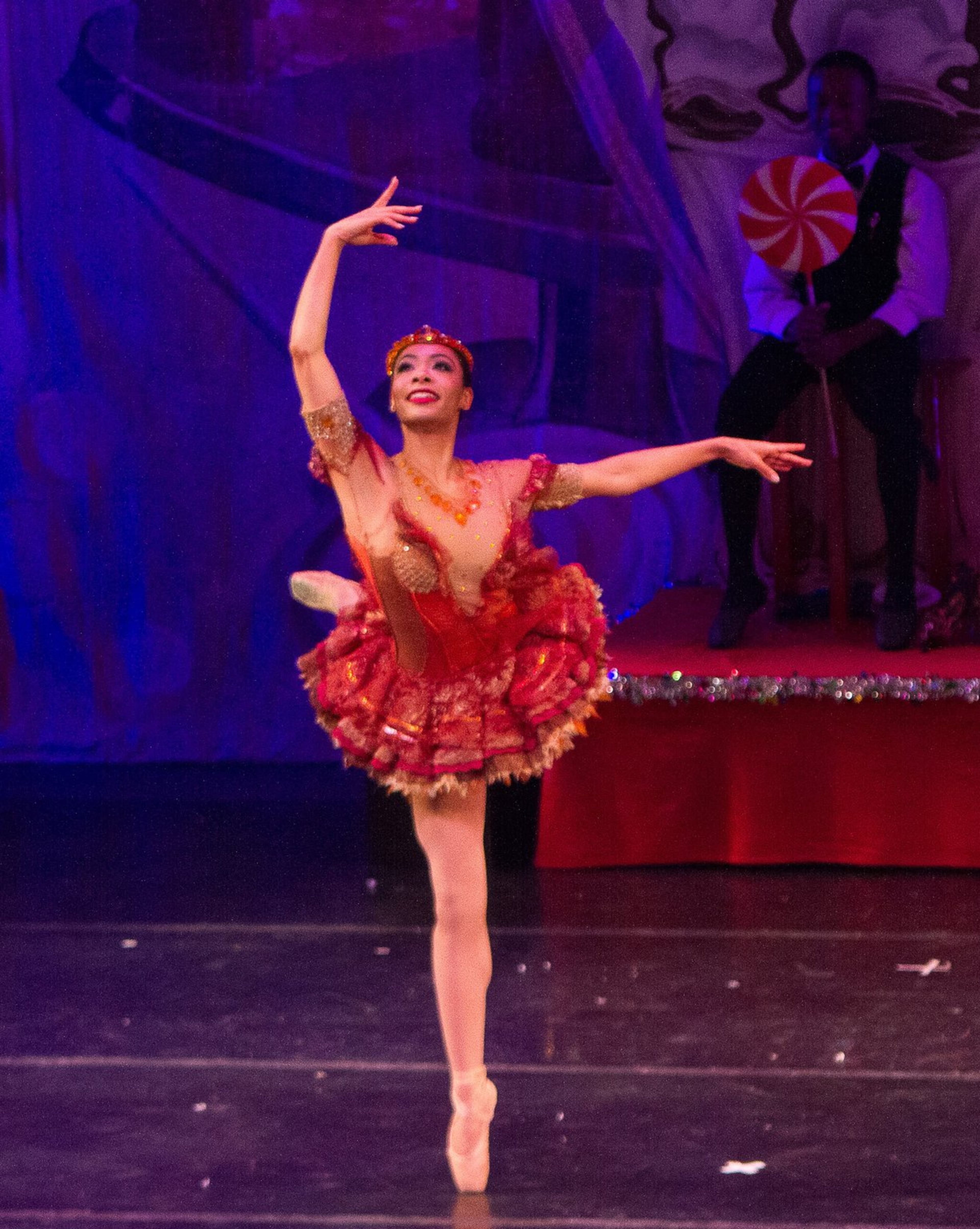
As they grew up and became technically accomplished dancers, they were cast in more substantial roles each year. Howard has performed almost every role from the Rat Queen to the sultry Arabian variation and the coveted Brown Sugar pas de deux. Tyson was first cast as Brown Sugar in 2004, when she was 16.
“Karla was and still is the star,” says Howard, “and she knows every step, every count in the ballet. It’s important for us to have steady, committed individuals like her who maintain the level of technique from season to season.”
Now they are both giving back, the Ballethnic way. Tyson is rehearsing the teenagers who dance on pointe, while Howard, who now owns a yoga business, is wrangling the children in the Act I party scene.
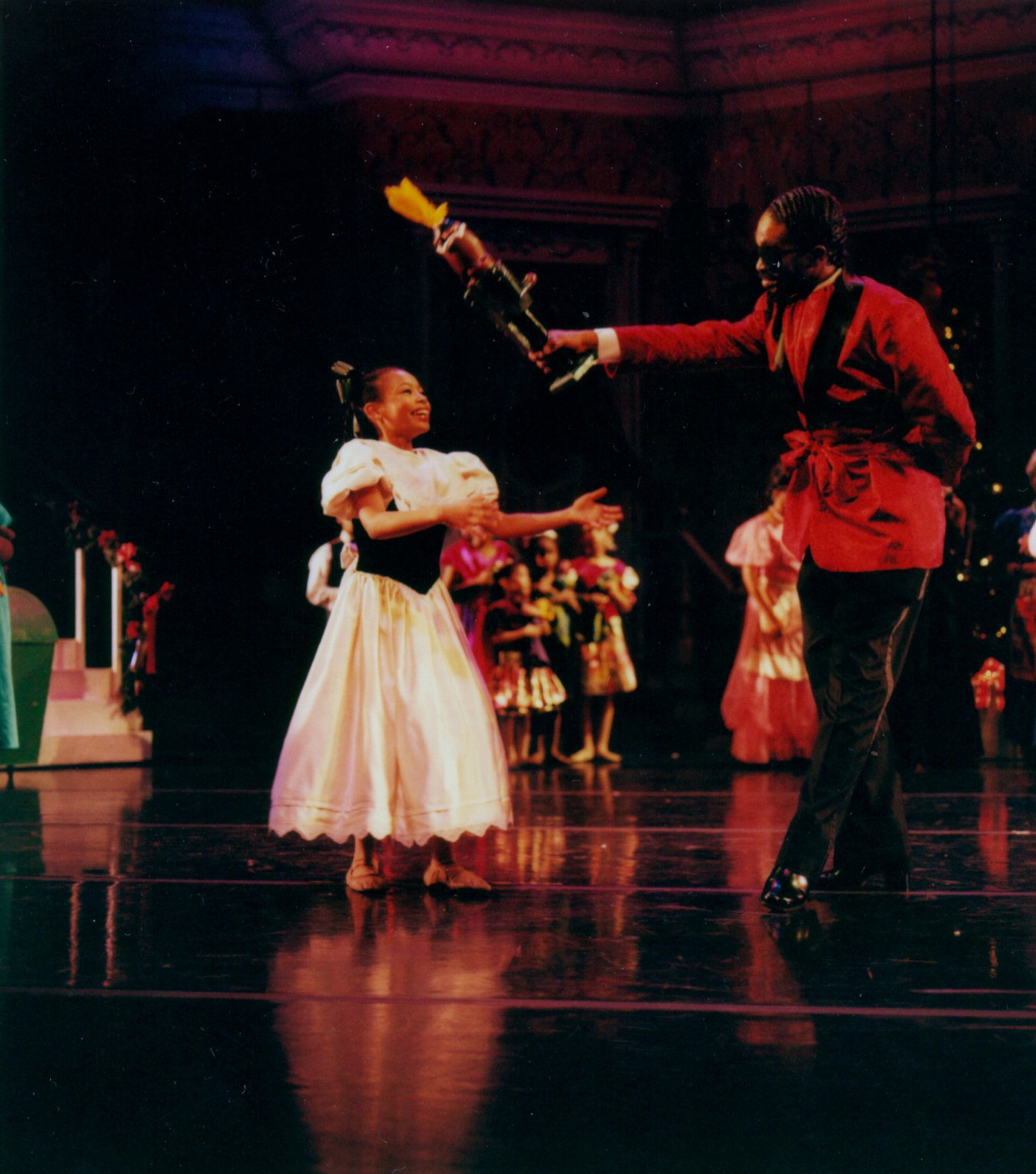
Says Gilreath: “To see these two ladies grow from children to mature women and give back to the art is very special. I rely on them and trust their decision-making. It’s nice for me to be hands-off, knowing they know the integrity of the ballet and are invested in it.”
Gilreath and Lucas have been teaching and presenting ballet in Atlanta’s African American community for more than three decades. They launched the company after careers with Dance Theatre of Harlem, the Black ballet company founded by Arthur Mitchell and Karel Shook in 1969, at the height of the civil rights movement.
Paunika Jones, a principal dancer with that company in the 1990s, is guesting with Ballethnic this year as the Snow Queen and the lead in Waltz of the Flowers.
Ballethnic’s focus on creating a family in which each generation is nurtured and encouraged is a huge part of its strength as a community arts organization. “We are always trying to keep ballet alive and get a new generation of dancers to carry it forward,” says Tyson.
“Urban Nutcracker” is a key part of this mission. If just one young person is inspired by the production, Tyson says, it’s worth it. “It can show people an opportunity they maybe didn’t think they had. They might be inspired to take classes in ballet, or acting, or anything else in the arts.”
Joining them behind the scenes is Freeman-Howard, who each year since 2005 has trained seniors from the H.J.C. Bowden Senior Multipurpose Facility to portray the joyful, occasionally tipsy, Act I party guests. “Waverly loves the intergenerational component,” she says.
A mother of five and grandmother of six, Freeman-Howard began her Ballethnic journey in 1990, first as a parent, then as an instructor and guest artist. She too has seen generations of young dancers perform in “Urban Nutcracker,” taking on more technical roles each year. She says Gilreath and other instructors excel at developing the dancers’ positive attributes, encouraging them to grow both as artists and as people.
Freeman-Howard is an assistant professor at Kennesaw State University and an instructor of African dance at Emory University, but this time of year her focus is on “Urban Nutcracker,” where she sees dozens of children come together as a team alongside her seniors. They learn to collaborate, she says, and take on new responsibilities, getting prepared for bigger roles in the coming years, growing with the company the way Tyson and Howard did.
This year, Gilreath and Lucas have cast two new Sarahs in “Urban Nutcracker.” They are both 12 years old. “They remind me of the work ethic that Karla and Laila exhibited,” Gilreath says. “It’s invigorating to see the past, present and future all in one room.”

MEET OUR PARTNER
ArtsATL (www.artsatl.org), is a nonprofit organization that plays a critical role in educating and informing audiences about metro Atlanta’s arts and culture. Founded in 2009, ArtsATL’s goal is to help build a sustainable arts community contributing to the economic and cultural health of the city.
If you have any questions about this partnership or others, please contact Senior Manager of Partnerships Nicole Williams at nicole.williams@ajc.com.

